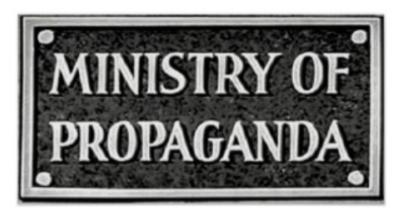Sana Qadar: Clarence Adams was an American soldier in the Korean War when he became a prisoner of war. He was held captive for several years. And you would think once he was freed, he’d want to go home. You’d think wrong.
Daniel Pick: The war goes on for three years. It comes then to a kind of stalemate in 1953. There’s a division of Korea. And there are thousands and thousands of POWs held on both sides. I mean, many of those POWs don’t go back to North Korea or to China, they go elsewhere. But there are a group, more unexpectedly, of American POWs who choose to go in the other direction.
Sana Qadar: Clarence Adams is one of those men. Now, the thing to know about him is he’s African American, and he decides to move to China.
Daniel Pick: And he has been persuaded or influenced by the education he’s received in the camps to think actually why would he go back to the US; he had come out of a history of racism, he was all too familiar with the brutality of the US, of his life in Memphis, and he’s looking for a new life. And he’s persuaded that communism offers something else, that this is a new start.
Sana Qadar: But this choice unsurprisingly causes a huge amount of concern and alarm in the States.
Daniel Pick: Because how could soldiers from the West really freely elect to choose that fate?
Sana Qadar: The answer, people come to believe, is they were brainwashed.
You’re listening to All in the Mind. I’m Sana Qadar.
From the Korean War to the Cold War to current-day campaigns of misinformation, the threat of brainwashing has freaked people out across the decades. But where do you draw the line between what counts as brainwashing and what counts as influence? Are we all brainwashed to some degree just by virtue of living in a culture?
Daniel Pick: I mean, none of us are self-made in terms of our minds and our identities. So there would be a fantasy of a sort of self-made person who’s never ventriloquising someone else.
Sana Qadar: Daniel Pick is a psychoanalyst, historian and author of Brainwashed: A New History of Thought Control. So today, we look at the origins, methods and variations of brainwashing.
So on the term of ‘brainwashing’, it’s such an evocative and vivid term. Can you explain where the term came from?
Daniel Pick: Well, interestingly the term is coined in 1950, and it comes up on both sides of the Atlantic, and the person who’s credited with popularising it in 1950 is Edward Hunter, who was a journalist who had worked in wartime intelligence, he wrote an article naming this new idea of brainwashing which was meant to be a translation of a Chinese term for the cleansing of the mind. And he was warning his readers about Maoism and communism, and this idea that a new set of techniques had emerged that could be used to manipulate the minds of the masses. And so it was part of that early Cold War fear of communism, and particularly of what was going on in China, and this idea of thought reform or thought control, and how insidious and dangerous this could be. He was not the only one, there were then a whole spate of articles and books and films in which this term became a kind of political football.
Sana Qadar: And so was that early panic and introduction to it really focused on China?
Daniel Pick: Well, I think, again, there’s the backdrop of all the post war interest in denazification. So one also has to think this is only a few years after the end of the Second World War and the question of how to de-nazify Germans and how to restore a liberal democracy, how to create and fashion subjects. But there was also the anxieties about communism in Russia, the Soviet Union, this idea of a sort of contagious set of ideas that were, you know, going to take over the people and also be infiltrated into the West.
But then, of course, with the creation of the People’s Republic in China with Mao, got a new context and this idea that sort of whole swathes of the globe now are under communist…under the sort of hammer and sickle, the question of whether there was going to be a domino effect of other countries becoming part of this communist empire. So I think initially there was a sort of Orientalist fascination and sort of sense of disturbance about the East, about China.
Sana Qadar: Given this atmosphere, it’s no wonder Clarence Adams’ decision caused so much drama. Remember he chose to move to Mao’s China after being freed as a POW in the Korean War. He tapped into the US’s worst fears about brainwashing.
Daniel Pick: He’s very turned off by the pressure to return to the US and really by the ideology of anti-communism in the US, but this kind of shrill atmosphere which of course we know now as McCarthyism in which there’s a kind of total hostility to left-wing thinking and witch hunts and all the rest of it. And he chooses to go, to have this adventure which lasts for a number of years, he marries a Chinese woman, he has two children.
Sana Qadar: But Clarence’s story doesn’t end in China.
Daniel Pick: As conditions become more difficult for Western citizens, he and a number of the others change their mind and go back to the US, and he has a very hard time when he goes back, but he survives, he’s not ultimately court-martialled or jailed or anything else, but he’s put through the wringer by the FBI and is quizzed and so on.
Sana Qadar: Later, he writes a memoir, An American Dream, reflecting on this period in his life. But Clarence wasn’t the only American soldier to choose to live in China and then later change their mind and head home.
Daniel Pick: And a number of the others of those POWs who also changed their minds also reflect on it later on. In the book, I try to give vignettes about Adams and some of the others including David Hawkins, who was the youngest of that group of 21, who was a white boy from Oklahoma, very young, 17 when he joined up, again feels he doesn’t have much to go back to the US for.
But he is very puzzled about this label ‘brainwashing’. He goes back to the US and is interviewed on television, in which the question is, ‘Were you brainwashed? You know, you’re either a traitor and a turncoat or you were brainwashed. How do we know that you weren’t brainwashed?’ And Hawkins is quite cool about this and says, ‘Well, you wouldn’t know.’ It’s a very interesting interchange in which the assumption of the interviewer is you were either a monstrous traitor or you were a brainwashed stooge.
Sana Qadar: In terms of what brainwashing is, is it actually effective, or is the fascination and fear with this term more based on the fear of its potential impact?
Daniel Pick: I think in the Cold War it’s often melodramatised, so I think we have to be cautious and to see the way in which it was loaded with assumptions and sensationalism. However, I think that if you take people prisoner, if you deprive them of all forms of access to other news, you traumatise people, you torture people physically and mentally, all sorts of techniques in the ’50s on both sides that are used, sensory deprivation, stress positions, squalid conditions, noise, silence, isolation, I mean you can do terrible things to the mind. So I don’t think that’s really in doubt.
And in a way part of what horrifies people in the ’50s is the capacity to destroy, you know, the sense that people are fragile, that identity is precarious. And then once you’ve broken people, then the question is what can you do with this kind of hollowed out shell of a person, where you’ve humiliated, induced guilt, and all the sorts of techniques that have been written about.
Sana Qadar: So that that is the playbook for brainwashing then, it’s quite violent.
Daniel Pick: It can be very violent, it can involve groups, group pressures, you know, as well as also people’s desperation to be loved or to find contact. So if you isolate people and have a very hateful, cruel interrogator, and then you introduce a sort of apparently kindly figure, people’s desperation to find someone to cling on to or to trust, so all kinds of techniques more or less overtly violent were developed in that period.
Sana Qadar: Daniel says when you scale up and look at how cults or certain political regimes try to control what and how people think, there are a lot of similarities.
Daniel Pick: One of the characters who I celebrate in the book, he’s still alive, he’s a psychiatrist and historian, writer, is Robert Jay Lifton, who wrote a really influential book on this subject in 1961. So in that book he thinks about more structurally what kind of ways do cults or political states operate in order to close down opportunities for dissent, for debate, for fact checking. You know, very often in these so-called brainwashing regimes you control the exit doors, nobody can get out. Other forms of information are controlled, limited or sometimes completely eliminated. You have purification rituals, you have a culture of confession, and so on. So he’s suggesting some of the techniques that you might run across different forms of cult organisation or even state that make it much harder for people to think.
And just to take one other key philosopher in that period who’s thinking very hard about related questions is Hannah Arendt and she suggests that there are certain forms of political state that she thinks of as totalitarian, in which news and information is organised in such a way not necessarily to convince everyone of X or Y, but completely to destroy any way of knowing what’s true and what’s false. So a kind of total assault on that capacity to discern, and where people become totally disorientated, and which lying and truth telling are blurred, and you lose all sense.
Sana Qadar: Was she talking about our current point in time? Oh, my goodness.
Daniel Pick: It’s terribly relevant. I mean, with a lot of these writers, I think the best writers of that period, they are very timely for the age of fake news, all our fears, Cambridge Analytica, Facebook, what’s happening on the internet, authoritarian populism, and people in news silos. So of course these speak also to our very different times as well.
Sana Qadar: This is All in the Mind, I’m Sana Qadar. Today, the history of thought control and brainwashing, with psychoanalyst and author Daniel Pick.
Let’s return to the 1950s now, the heyday of panic about brainwashing. The West at this time was obsessed with China and the Soviet Union and communism in general, and how its citizens might be corrupted.
I mean, did it occur to anyone in the West that this was something that could be done by the US or the UK themselves? Like brainwashing wasn’t just a thing that was some scary technique from the East, it was very well applicable to them as well?
Daniel Pick: I think that’s right. And I think the concept does sort of quite soon boomerang back on the West into sort of debates about persuasion and hidden influence in the West. And of course long before this debate about brainwashing has emerged, there’d been a lot of discussion in the West about what was going on in European countries and in the United States and other parts of the world about mass suggestion and group phenomena. So in that sense it wasn’t new to hold a mirror up to our societies, you know, so there’s all that backdrop that you get in the late 19th century, really the invention of crowd psychology, of thinking about…in an age where the masses have become political actors, and you’ve got ever more people voting, mass media. But then yeah, in the 1950s, after the term ‘brainwashing’ has been coined and there’s this initial focus on China, there’s a lot of discussion then about how far this might apply in conditions of relative freedom.
Sana Qadar: Other terms began entering the mix around this time as well, phrases that alluded to this kind of thought control or thought influence.
Daniel Pick: Alongside that more dramatic term ‘brainwashing’, you have other terms like ‘groupthink’, that’s coined in 1952 by an American business journalist, William Whyte, writing actually in a business magazine suggesting that it’s not brainwashing in this sort of melodramatic sense of a total takeover by some insidious power, he’s more suggesting that in corporations, in big business, in huge bureaucracies in the United States, there’s a sort of curious synchronisation of behaviour and opinion occurring where people just start becoming more alike in their attitudes, in their mores, their customs, and he’s interested in how does this get inculcated so that people are selected for jobs because they are like other people, they fit in and how people then adapt and acclimatise to the culture of big business.
Sana Qadar: And soon the advertising industry picks up on the fact that you can really influence people’s behaviour by influencing their minds. Two characters help tell the story of influence through advertising in this era; psychologist Ernest Dichter and journalist Vance Packard. First, psychologist Ernest Dichter
Daniel Pick: After the war, Dichter is very important, sets up an institute for what he calls motivational research in New York State. And this is offered as a service to the advertising industry, in which Dichter promises them that you can plumb the depths of people’s minds. Instead of just thinking about what products actually are offering directly, you need to drill down into what people secretly think about products and what their emotional associations are or the unconscious meanings, and you need, he says, focus groups, you need to sort of explore in depth psychological attitudes to consumption. And he develops this whole technique about fashioning products in accordance with what he thinks of as the deeper desires and appetites and anxieties of the masses, and has a very successful career.
Sana Qadar: But then in the late 1950s, along comes journalist Vance Packard who publishes a book that lifts the lid on these techniques in the ad world. It’s called The Hidden Persuaders.
Daniel Pick: Packard, it becomes a best seller and it’s about Madison Avenue, this idea that the advertising industry is harnessing these techniques, ideas about behaviourism, ideas about the unconscious, and using it in ever more sophisticated ways to sell people goods, or political ideas, that make a mockery of the idea of either political voters or consumers really freely choosing for themselves. Packard tries to expose these techniques and to warn the reader that they are being used and manipulated and nudged to consume things for reasons they’re not consciously aware of.
Sana Qadar: In 1957, the year The Hidden Persuaders is published, Packard and Dichter go on radio and debate the merits of all of this.
Daniel Pick: Dichter says, you know, it’s all overblown, he’s sensationalising it, what’s wrong with giving people information about products. And on the other hand, Dichter is saying this is as old as humankind, there’s always been persuasion and it begins in family, so why is he picking on the advertising industry. Whereas Packard thinks it’s really very dangerous and sees where it’s going, new forms of both surveillance and manipulation. But advertising becomes really, I think, the kind of key area in the West where you see these debates about mind control really becoming powerful and influential by the late 1950s.
Sana Qadar: In terms of all this constellation of terms, is it fair to sort of describe it as brainwashing is like a continuum of behaviour where perhaps on one end of the spectrum you have brainwashing, the other end persuasion, in the middle there’s groupthink, manipulation, all these sorts of other things?
Daniel Pick: Yes, and one can then run that spectrum on to training and drilling in armies, and think about education itself, and at what point does education start to blur into something called drilling or training and then into something called groupthink, you know, not suggesting that there’s some sinister conspiracy to do this, but just that these sorts of processes can lead to a world in which people aren’t actually able to think.
I mean, one of the things that really interested me in doing the research for the book and then in trying to sort of think about this is how this whole language of mind control that crystallises in the 1950s was a kind of invitation to people to worry about their own minds, even if they weren’t prisoners or prisoners of war, or prisoners of conscience or in a kind of totalitarian state. But the question of brainwashing or groupthink posed the question; what is it to think for yourself? How do you know that your thoughts are your own, that your identity is in some way authentic and not being somehow manipulated and fashioned? And there is a spectrum and we’re all influenced in myriad ways by other people, by teachers, by culture, all sorts of things. So I think the spectrum is what’s at stake, and one person’s brainwasher might be another person’s freedom fighter. So all these terms are up for grabs.
Sana Qadar: The anxiety around the threat of brainwashing and techniques of persuasion remained elevated through the ’50s, ’60s and ’70s, so much so that at one point even the Beatles are accused of brainwashing young people.
Just going back to the wartime techniques, the violence we talked about, I’m curious how we got from that sort of description of brainwashing to when the Beatles were accused of brainwashing. How did that term travel so far from war and violence to now being applied to a musical group?
Daniel Pick: I think again, you know, there’s a bigger history which is about soft power in the world, and there’s overt propaganda, and of course in the world wars propaganda becomes a key thing when you’re thinking about morale in warfare. But the question of soft power and culture and the way in which popular culture can also shape and influence people, whether it’s cartoons, whether it’s pulp fiction or whether it’s popular music, so there’s quite a lot of anxiety as pop music really takes off with Elvis or later the Beatles about mass hysteria, this kind of sense of something so excited and out of control and suggestible that’s going on.
And then with some of the Beatles’ more experimental music, their more challenging and radical songs, right-wing pastors and politicians in the US start to turn on them, particularly when the Beatles are touring in the US, and sort of warn against both the sexual decadence, licentiousness, you know, all that sort of sense of permissiveness, and the idea that they might be in some way in the service of communism
Sana Qadar: Whether the Beatles were actually trying to brainwash anyone through their music is doubtful. But one group that did know the power of music and art to spread a message was the CIA.
Daniel Pick: Yes, I mean, that soft power is used so that jazz musicians were seen as kind of helpful for the Western case at influencing people in under communism about, you know, jazz is a form of improvisation because it’s not all scripted. So the idea of the art of freedom of artists like Jackson Pollock with his amazing techniques of painting that are sort of all about liberation of the unconscious and some kind of experimentalism is also seen as useful in this Cold War struggle. So both sides use (overtly and covertly) culture, science, music to advance their cause, film as well becomes part of this sort of battle of ideas, not just in the US and the Soviet Union but the sense that the whole world is now a cultural and political battleground for this idea of psychological warfare.
Sana Qadar: But what did the CIA actually do with jazz musicians and Jackson Pollock? Did they, you know, take them abroad, or…?
Daniel Pick: They promoted them. And there’s a really interesting book called Who Paid the Piper? that tells the story of all the covert funding. So there was an awful lot that was later uncovered about this soft power issue in the West. And the Beatles were accused on both sides, because they caused unease in the Soviet Union for corrupting Soviet young people, so it wasn’t just in the West.
And I should also mention Elvis Presley, because he earlier has aroused all this anxiety about sort of sexual, you know, a sort of more orgiastic audience reaction to his body, his rhythm, his swivelling hips and his sound. But he presents himself later on, turns up at the White House at the end of the 1960s to meet Richard Nixon, and wants to be sworn in as a special agent. So Nixon agrees to meet him. I mean, he literally just turns up in his car with a letter for Nixon, and Nixon then invites him in, and Presley wants to be, at this point, a special agent to deal with, quote, the brainwashing, quote, of American youth. So he has some idea that he could be a sort of antidote. He doesn’t specify the Beatles or any other group, but he has some idea of a manipulation and malaise in American young people and he’s somehow going to be a helpful agent of the state.
Sana Qadar: And was he used by them?
Daniel Pick: I don’t think so. I think Nixon was bemused. He was told he ought to see Presley because this would be good. And there’s a photograph of the two of them meeting and Presley is given some kind of certificate. So I think it’s sort of humouring Presley, but Nixon is wondering what’s going on, but he’s advised he ought to meet, and there’s this kind of curious encounter, which I think is one of the more whimsical moments. So there is a sort of more light-hearted element to the story of brainwashing. But I suppose one also has to keep in mind that this is a story that can be both taken up in popular culture, but also is a hideous story in which people actually suffer, prisoners and all the rest of it. So I think it’s a complex story that goes from the world of cartoons through to the horrors of detention and torture.
Sana Qadar: I want to come to today, what are the most troubling examples of brainwashing that we see going on today, do you think?
Daniel Pick: Again, you know, you’ll get different answers from different commentators, journalists, politicians, depending on their political orientation, and I’m coming from the liberal position and the left position rather than a right-wing position where you might get a very different answer to where that’s coming from. But I think climate change denial, I think authoritarian populism, I think there are all kinds of ways in which we are manipulated. Of course one might see liberalism as itself very complacent.
But I think today, you know, I think the very obvious dangers, one thinks of Bolsonaro, one thinks of Trump, one thinks of all kinds of new neofascist forces, where even the most basic claims about facts are in contention. I think we are in a very different world where we can’t agree. Like in the United States, there isn’t a consensus even about the most elementary facts like the size of a crowd in the inauguration of a president; the president says it’s the biggest crowd ever and the photographs appear to show otherwise. And even that can be contentious.
And of course, the internet, in some ways that’s such a tool for information and education and it’s not that the internet is all bad, but one can also see how that has played into some of this in insidious ways. And I’m just saying obvious things here about news silos and echo chambers online and the way in which this can also be manipulated and gamed even on search engines as to what you find and so on. And there are new terms we have now that are also to be treated with caution, like ‘radicalisation’, and ‘de-radicalisation’ that are maybe the heirs to this language of brainwashing.
But I suppose what I’m arguing in the book is that there’s a rich literature from the past, it doesn’t deal with all our problems of course, but nonetheless a very rich literature that we can return to and sort of think about how that might help us to think about the conditions we’re facing, the crisis we’re in now.
Sana Qadar: And finally, we’ve talked about so many different examples, the spectrum from violent brainwashing to persuasion and all the rest, are we all brainwashed to a degree just by virtue of living in a culture, just by virtue of living in structures of power? You know, can we ever escape this really?
Daniel Pick: I mean, none of us are self-made in terms of our minds and our identities. So there would be a fantasy of a sort of self-made person who’s never ventriloquising someone else, who’s never identified unconsciously with someone else. I mean, it’s fundamental to the human condition, isn’t it. I mean, to think about how as babies, as infants, as children, we’re shaped by our primary carers, by our peers, whether it’s siblings, family, school, culture, all the rest of it. So it would be fantastical to imagine ourselves as immune to that.
So the question is not whether one could be completely exempted from all of this, but to think about the forms that are more helpful, benign, open to scrutiny. And that’s true of course with education, with universities, with media, with cinema, you know, that it can be more or less open to exploration, to helping people, sometimes to doubt and to question presuppositions rather than to manipulate and reinforce ideological assumptions.
Sana Qadar: That’s it for All in the Mind. Thanks to Daniel Pick, psychoanalyst, historian and author of Brainwashed: A New History of Thought Control. Thanks also to producer Rose Kerr and sound engineer John Jacobs. I’m Sana Qadar, thanks for listening. I’ll catch you next time
Where do you draw the line between brainwashing… and influence?
Thought control… and mere suggestion?
From the Korean War, to The Beatles, to current day, we trace the sometimes scary/sometimes weird history of brainwashing.
Guest:
Daniel Pick
Author, Brainwashed: A New History of Thought Control
Psychoanalyst
Historian
Producer:
Rose Kerr
Sound engineer:
John Jacobs








